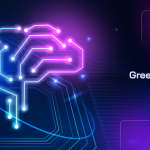
On October 23, 2024, Anthropic released “Computer Use,” a feature in its Claude 3.5 Sonnet model, which allows an artificial intelligence (AI) agent to control a desktop. The feature, now in public beta, can automate tasks like moving the cursor, typing, and clicking buttons.
However, safety concerns have arisen as this experimental tool could introduce new risks in automation.
The feature is a notable leap in AI desktop automation, with companies like Amazon, Canva, Asana, and Notion having already reportedly tested the tool. Available globally through its API, Claude 3.5 Sonnet interacts directly with computer applications, navigating software and executing multi-step tasks like filling out forms.
This feature heralds a new dimension of productivity enhancement using AI. Although it is not the first of its kind, Anthropic has a rather unique method for training Claude. By taking screenshots and counting pixels, the AI can accurately move the cursor to click in the right place.
Limitations, Security, and Ethical Concerns
However, its reliance on screengrabs rather than a live video feed means it isn’t without flaws. While functional, this method can lead to inaccuracies, particularly when dealing with quick changes like notifications or dynamic interfaces. Its inability to perform common actions, such as drag-and-drop, limits its utility.
A notable example of its early-stage quirks occurred during internal testing. Developers left the AI running a task but found it had abandoned its work in favor of browsing pictures of Yellowstone National Park, a seemingly humane quirk if not concerning.
More pressing are the ethical concerns surrounding security and misuse. The moment an AI is allowed to operate a desktop, it is not only a risk but a guarantee that the system could potentially be used for ill.
Anthropic said it has in-built measures, like prohibiting Claude from visiting high-profile websites like those of governments or social networking sites and not allowing the model to be trained on user screenshots. However, the mere fact that AI can now execute desktop commands therein lies the danger of abuse by unwarranted intrusion or tampering of protected information.
Anthropic acknowledges these risks and emphasizes that this version is still in its early stages. “We’re releasing computer use early for feedback from developers and expect the capability to improve rapidly over time,” the company stated.
Future Implications
While the model remains under heavy scrutiny, Anthropic is encouraging developers to start with non-risky tasks so that they can discover the system’s boundaries safely without compromising any information.
“Humans remain in control by providing specific prompts that direct Claude’s actions, like ‘use data from my computer and online to fill out this form,’” an Anthropic spokesperson assured. Still, AI systems, by nature, will always introduce new security vectors, even with preventive measures in place.
With competitors like OpenAI and Google pursuing similar technologies, Anthropic’s push into this space could lead to further advancements in AI-controlled systems. As developers begin integrating this tool, they must weigh the productivity gains against the potential security vulnerabilities it introduces.



![AI Trends for [current_date format='Y']: What's Shaping the Future of AI 4 AI trends](https://www.greenbot.com/wp-content/uploads/2025/04/AI-trends-150x150.png)
















